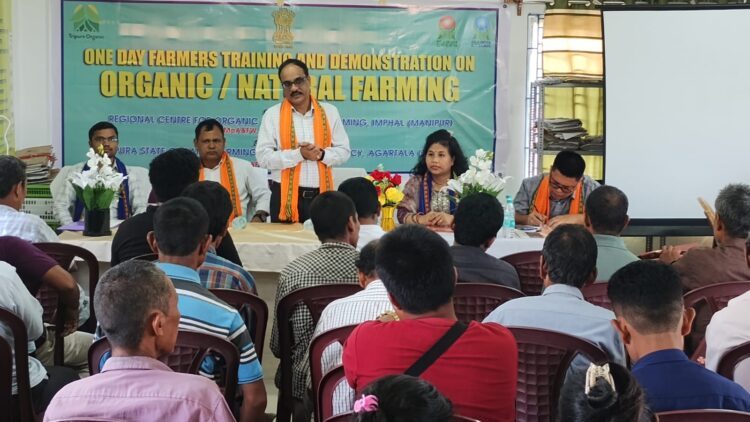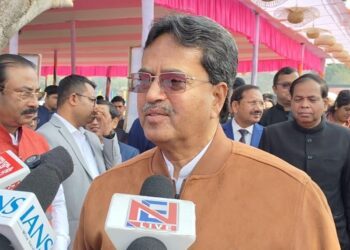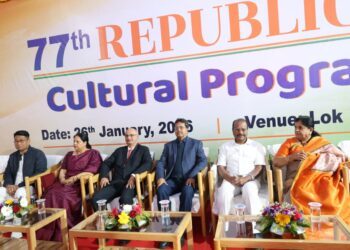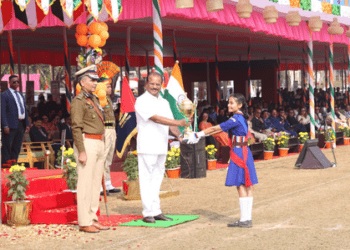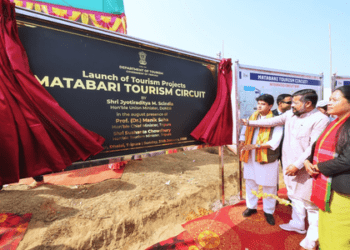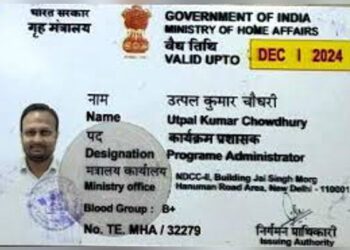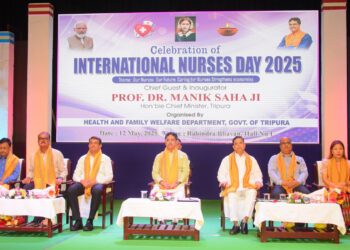27th August, 2024: A significant step towards promoting sustainable agriculture was taken yesterday with the successful organisation of a one-day training and demonstration program on organic and natural farming at the Office of the Superintendent of Agriculture in Belbari, Tripura West. The event, held on 27th August 2024, was a collaborative effort between the Regional Centre for Organic and Natural Farming (RCONF), Imphal, under the Department of Agriculture & Farmers Welfare, Government of India, and the Tripura State Organic Farming Development Agency (TSOFDA), Agartala, DA & FW, Government of Tripura.
The training program was inaugurated with a warm welcome extended to the Chief Guest and other distinguished dignitaries by the Office of the Superintendent of Agriculture, Belbari District. The formal proceedings began with a welcome address delivered by an official from the Agriculture Department, Belbari. This set the tone for the day, emphasising the importance of organic and natural farming practices for the sustainable development of agriculture in the region.
Dr. V. Y. Deoghare, Deputy Director of RCONF, Imphal, provided a comprehensive overview of the program’s objectives. He highlighted the mandate of the RCONF and the critical need for organic farming in today’s agricultural landscape. Dr. Deoghare explained the components of organic farming, emphasising the importance of reducing chemical inputs and adopting environmentally friendly farming practices. His address underscored the long-term benefits of organic farming, not just for the environment but also for the health and economic well-being of farmers.
Smt. Rakhi Devbarma, Assistant Director of the Mission Organic Value Chain Development for the North Eastern Region (MOVCDNER), Tripura, followed with a detailed lecture on the benefits of organic farming. She focused on various composting methods that can be utilised by farmers to enhance soil fertility and promote healthy crop production. Her session was informative, offering practical insights into how organic farming can be integrated into existing farming systems to improve yield and sustainability.
The training program also featured Shri Pinku Basal Devbarma, Assistant Director at the State Agricultural Research Centre (SARC), Jarania Agri Subdivision, who shared his expertise on the farming system, certification process in organic farming, marketing strategies, and the MOVCDNER scheme. His presentation was particularly valuable as it provided farmers with the necessary knowledge to navigate the complexities of organic certification and market their produce effectively.
Adding to the technical depth of the training, Shri Narendra Chaudhari, Junior Scientific Officer at RCONF, Imphal, discussed bio-inputs and bio-formulations. He elaborated on the use of various organic inputs, which are crucial for maintaining soil health and ensuring sustainable crop production. Shri Chaudhari’s session was followed by a live demonstration of the preparation of Indigenous Technical Knowledge (ITKs) such as Jeevamrit, Beejamrit, Agnistra, and Neemastra. This practical session, conducted by Smt. Maibam, Subject Matter Specialist at Krishi Vigyan Kendra (KVK), Tripura West, was one of the highlights of the program, as it provided hands-on experience to the participating farmers.
The training saw active participation from 50 farmers, all associated with Farmer Producer Companies (FPCs). These farmers were keen to learn and apply the principles of organic and natural farming in their own fields, reflecting a growing awareness and demand for sustainable farming practices in the region.
The program concluded with a vote of thanks delivered by Mr. Tushar Kanti Das, Superintendent of Agriculture, Belbari, Tripura West. He expressed gratitude to all the speakers, participants, and organisers for their contributions to the success of the event. The training program was meticulously coordinated by Mr. M. K. Meena, Technical Assistant at RCONF, Imphal, ensuring that the day’s activities proceeded smoothly and effectively.
This event marks a crucial step forward in promoting organic and natural farming in Tripura, equipping farmers with the knowledge and skills necessary to transition towards more sustainable and eco-friendly agricultural practices. The collaborative efforts of various government agencies underscore the commitment to supporting farmers in adopting organic methods, which promise long-term benefits for both the environment and the agricultural community in Tripura.


